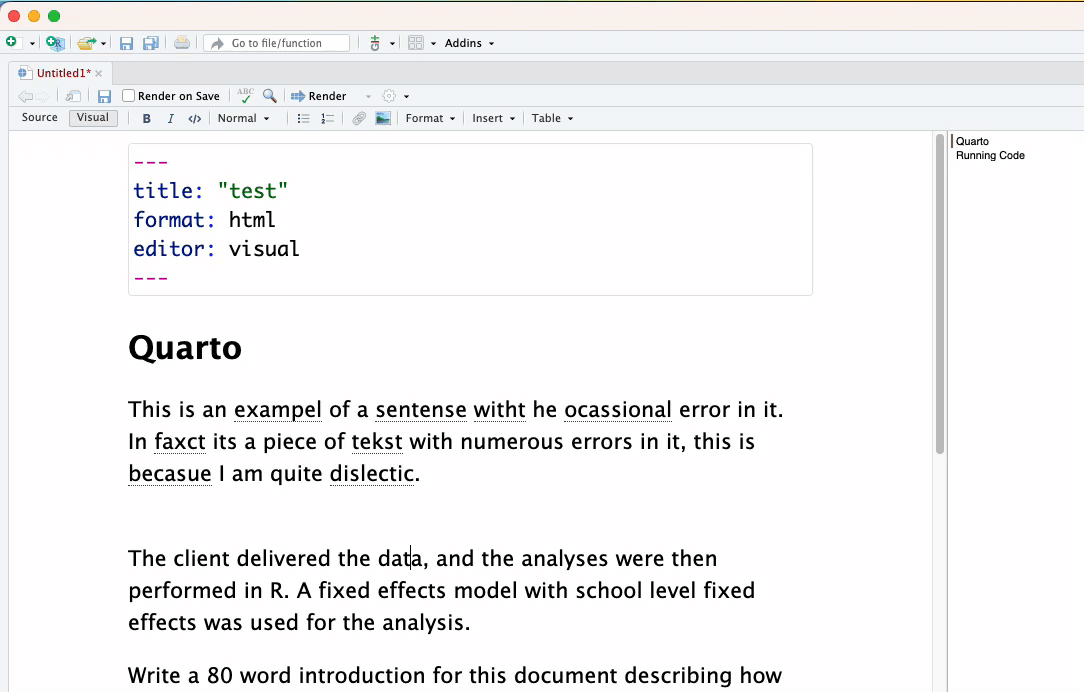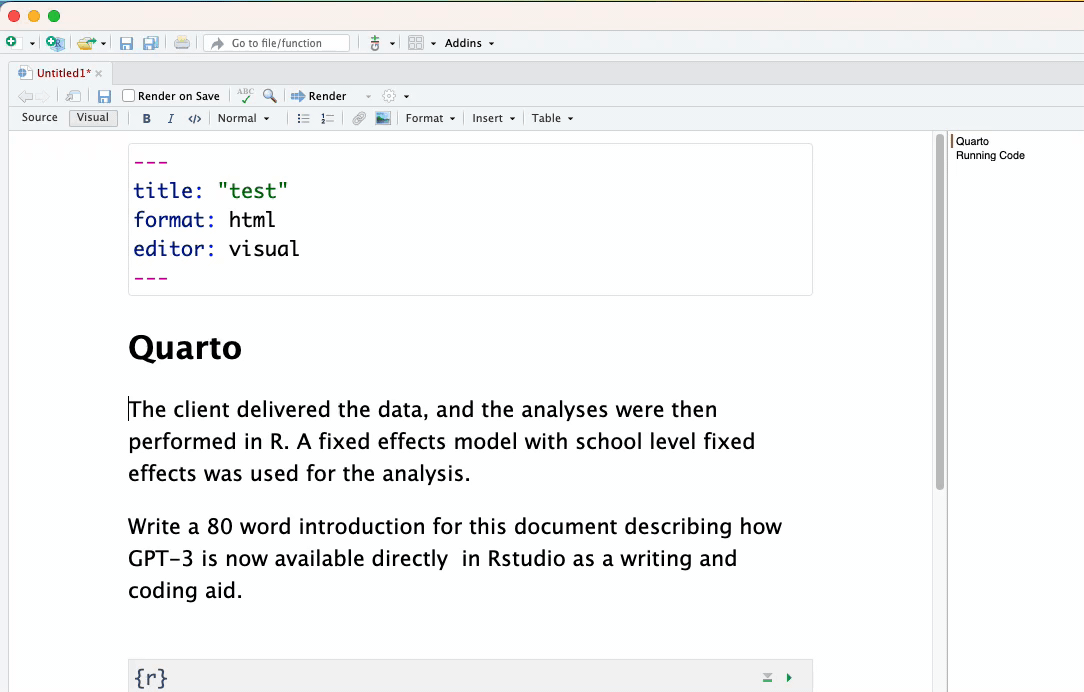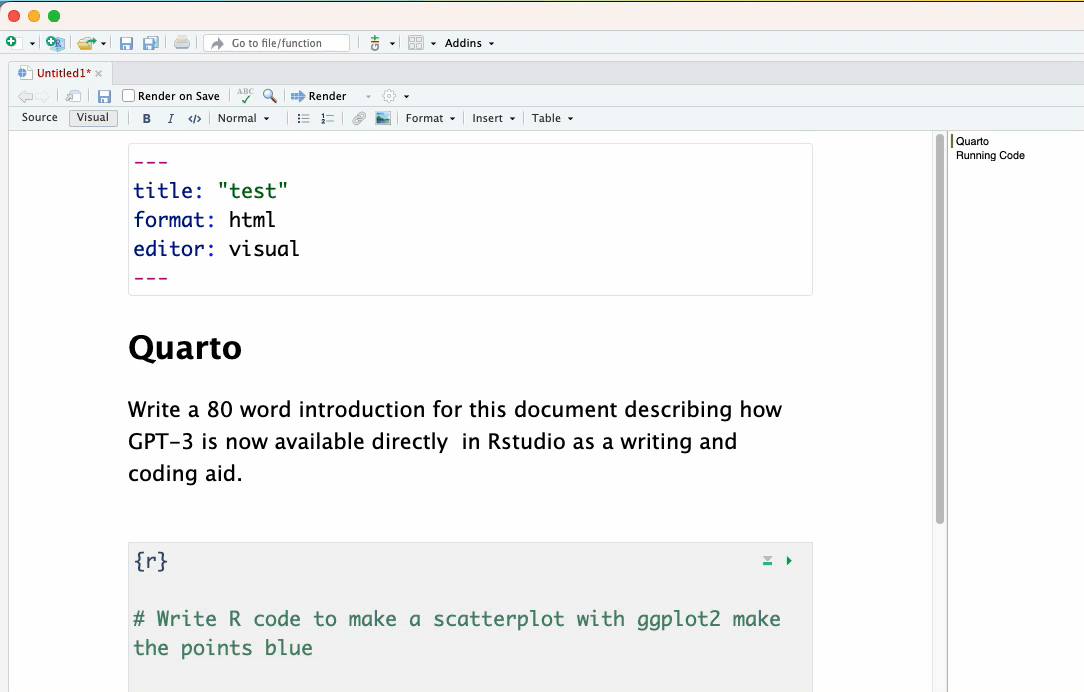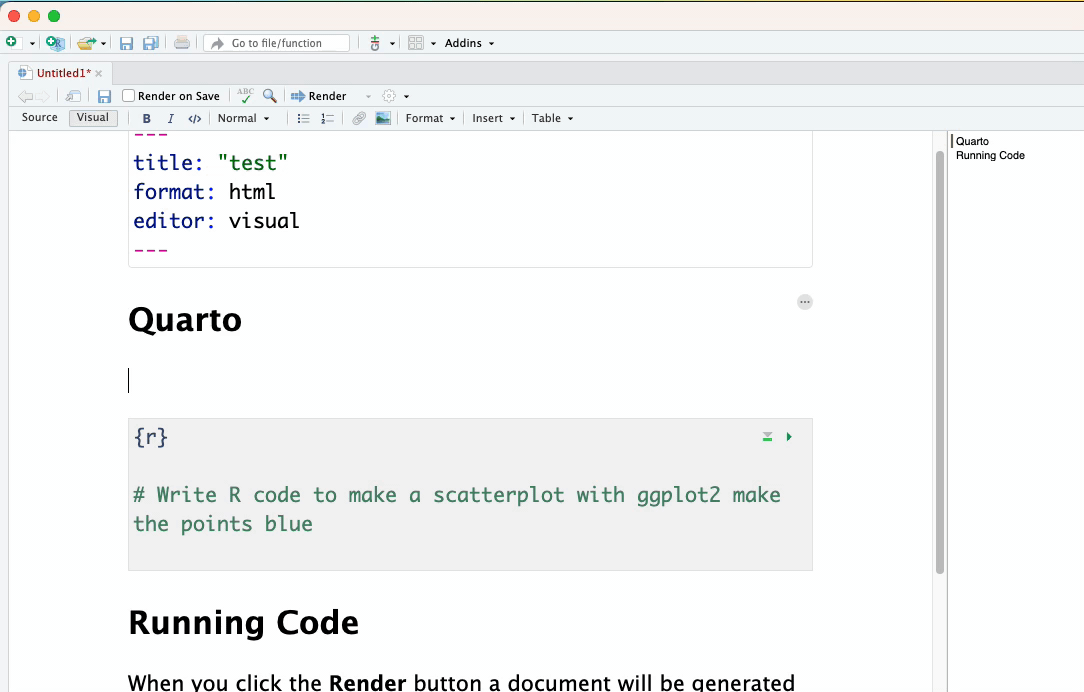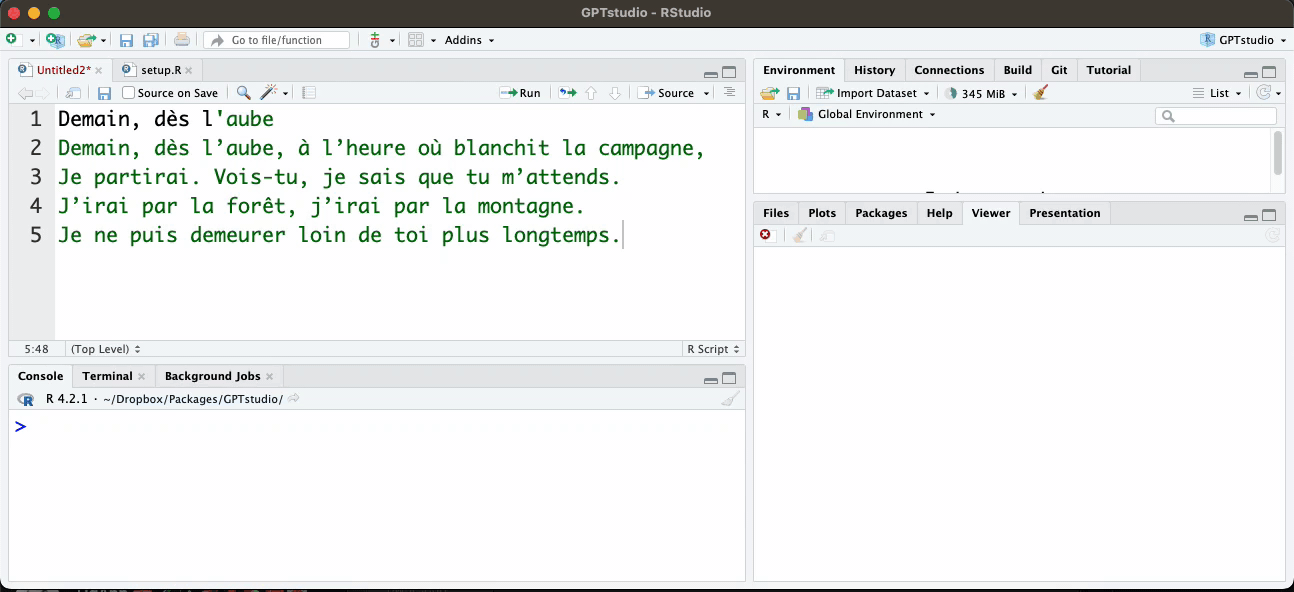The goal of gptstudio is for R programmers to easily incorporate use of large language models (LLMs), specifically for now GPT variants developed by OpenAI, into their project workflows. These models appear to be a step change in our use of text for knowledge work, but you should carefully consider ethical implications of using these models. Ethics of LLMs (also called Foundation Models) is an area of very active discussion.
read the privacy note at the bottom, this is alpha software there is no warranty for anything.
-
Make an OpenAI account. As of now, the free one will do.
-
Create an OpenAI API key to use
{openai}package within Rstudio -
Set the API key up in Rstudio in one of two ways:
- By default, functions of
{openai}will look forOPENAI_API_KEYenvironment variable. If you want to set a global environment variable, you can use the following command, where"<APIKEY>"should be replaced with your actual key:
Sys.setenv(OPENAI_API_KEY = "<APIKEY>")- Alternatively, you can set the key in your .Renviron file.
Otherwise, you can add the key to the .Renviron file of the project. The following commands will open .Renviron for editing:
require(usethis)
edit_r_environ(scope = "project")You can add the following line to the file (again, replace
"<APIKEY>" with your actual
key):
OPENAI_API_KEY="<APIKEY>"This now set the API key every time you start up this particular project. Note: If you are using GitHub/Gitlab, do not forget to add .Renviron to .gitignore!
require(devtools)
install_github("MichelNivard/GPTstudio")Some examples of use.
Addins > GPTSTUDIO > Spelling and Grammar: Takes the selected text sends it to OpenAI’s best model and instructs it to return a spelling and grammar checked version.
Addins > GPTSTUDIO > Change text to active voice: Takes the selected text sends it to OpenAI’s best model and instructs it to return the text in the active voice.
Addins > GPTSTUDIO > Write/Code from prompt: Takes the selected text and sends it to OpenAI as a prompt for the model to work with. This is most like the ChatGPT experience.
Text from prompt:
Code from prompt:
Addins > GPTSTUDIO > Comment your code: Takes the selected text sends it to OpenAI as a prompt for a code specific model to work with, asks for a version with a comment added explaining the code line by line.
Addins > GPTSTUDIO > Freeform GPT editor: Apply any edit what YOU desire or can dream up to a selection of code or text.
Privacy note: these functions work by taking the text or code you have highlighted/selected with the cursor and send these to OpenAI as part of a prompt, they fall under their privacy notice/rules/exceptions you agreed to with OpenAI when making an account. I do not know how secure these are when sent to OpenAI, I also don’t know what OpenAI does with them. The code is designed to ONLY share the highlighted/selected text and no other elements of your R environment (i.e. data) unless you have highlighted it when running the addin. This may limit usability for now, but I do not want people to accidentally share sensitive data with OpenAI.
DO NOT HIGHLIGHT, AND THEREFORE UPLOAD, DATA/CODE/TEXT THAT SHOULD REMAIN PRIVATE.

